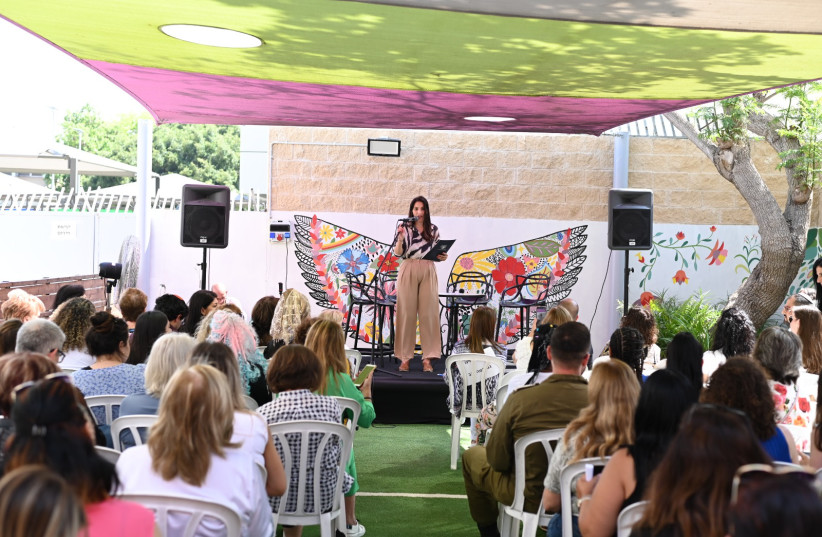Dana came to WIZO’s Gina Fromer Shelter for Women Victims of Domestic Violence and Their Children with little more than her two children in tow, just one month after immigrating to Israel. “I came here 17 years ago with two children, no language, no nothing,” said Dana, a pseudonym, because it is unsafe for her to use her own name.
“If I could do without Mom and Dad, without language and nothing, anyone could,” she said.
“This is my life and I wish that the precious women here would continue to save the lives of other women.”
Celebrating the shelter's 40th anniversary
She returned to the shelter last week to help it celebrate its 40th anniversary, having completed a degree, and as the current owner of a hairdresser business.
This is one of two shelters run by the Women’s International Zionist Organization (WIZO). At the celebrations, former sheltered residents and their children came, as well as officials from the Welfare and Social Affairs Ministry.

The shelter was the first to be operated in cooperation with the ministry. The shelters aim to provide safety to women and children fleeing abusive men, and offer group and individual therapy to prepare its inhabitants for an “independent and violence-free life.”
Fromer, a Holocaust survivor who was sexually abused by the Nazis, moved to the United States and contributed to each of WIZO’s shelters. She passed away in 2015, leaving behind a $7 million inheritance that went toward large-scale facility renovations.
“40 years of rebirth: that’s the real story of this shelter,” WIZO chairwoman Anita Friedman said. “This shelter was the first refuge in Israel, and has provided a continuous and comprehensive therapeutic procedure for the rehabilitation and empowerment of women, and their accompaniment until their return to normal life.”
Fighting domestic violence in Israel
Israel has more than 200,000 women and 500,000 children who are domestic violence victims each year.
Over 4,500 women have left their homes and were housed in WIZO shelters, according to President Esther Moore, who said that the shelters gave “them hope for a peaceful and quiet life.”
Mira Minas, the organization’s CEO, called on the Knesset, employers, local authorities and the general public to continue working toward creating a safer home environment for women and children.
“The same women who come here are going to war for their [and their children’s] lives, their security, their sanity, and their big dream – a life without violence, good and stable,” she said.
“To restore life and security for these women, one main thing is needed: an environment that identifies and takes responsibility.”
